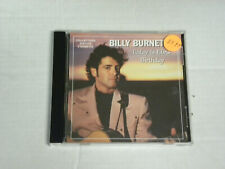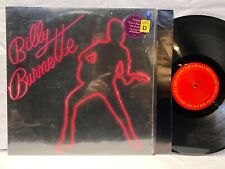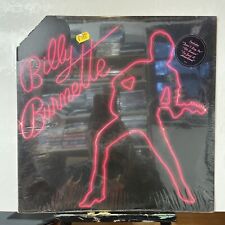|
The Plain Dealer (02/15/1998), Rock Hall Snubs Welch; Induction Process Called Political and Arbitrary The Plain Dealer, February 15, 1998 Rock Hall Snubs Welch; Induction Process Called Political and Arbitrary
By Michael Norman; Plain Dealer Music Critic How do you leave Bob Welch out of the history of Fleetwood Mac and include Donna Jean Godchaux as a key player in the story of the Grateful Dead? It apparently makes complete sense to music industry insiders who run the New York-based Rock and Roll Hall of Fame Foundation and control the induction process for the Rock and Roll Hall of Fame. The foundation bestowed its highest honor on Godchaux, who sang backing vocals with the Dead from 1971-79. She was inducted into the Rock and Roll Hall of Fame as a member of the band in 1994. But when Fleetwood Mac was inducted into the rock hall last month in New York, Welch was snubbed - despite the fact that he was a key member of Fleetwood Mac from 1971 to 1975, and sang lead vocals, played guitar and wrote many of the songs on five of the band's studio albums. The individuals inducted as members of Fleetwood Mac were Mick Fleetwood, John McVie, Christine McVie, Lindsey Buckingham and Stevie Nicks. Three early members of the group - Peter Green, Jeremy Spencer and Danny Kirwan - were also inducted. Was Welch's omission an oversight? Welch doesn't think so. He left the group in 1975 to pursue a solo career and now works as a full-time songwriter in Nashville. He believes it was retribution for a royalties lawsuit he filed in Los Angeles County Superior Court in 1994. The defendants were Mick Fleetwood and Christine and John McVie. Welch, who alleged that he was underpaid royalties on the recordings he made with Fleetwood Mac, says the case was settled out of court for an undisclosed sum. But filing the suit didn't exactly endear him to his former bandmates. He believes they pressured the rock hall to exclude him from the induction. Fleetwood Mac's publicist at Warner Bros. Records did not return phone calls seeking comment on Welch's allegations. But the rock hall's New York-based executive director Suzan Evans denies the charges, saying that inductees are selected "solely on the basis of artistic merit." That said, the foundation does have a history of caving to political pressure when it comes to deciding which band members will be inducted. Godchaux earned her spot in the hall of fame because the Grateful Dead's acknowledged leader, Jerry Garcia, demanded the rock hall induct everyone who ever played in the group. The 12 inducted members of the Grateful Dead include Tom Constanten, who played keyboards from 1968-70; Keith Godchaux (Donna's husband), who played keyboards from 1971-79; and Robert Hunter, who was Garcia's lyricist. "I give Jerry Garcia credit for standing up for those people," says Welch. "I'm really disappointed about being overlooked by Fleetwood Mac. It basically comes down to the fact that they don't like me anymore. "I guess they can do what they want. I could understand it if I had been a sideman for a year. But I was an integral part of that band for five years. I put more of myself into that band than anything else I've ever done." Rewriting history? Most American rock fans know Fleetwood Mac as the supergroup that produced the best-selling 1977 album, "Rumours." That band - which featured Fleetwood, the McVies, Buckingham and Nicks - formed in 1975 and broke up in 1987. They recently reunited for a North American concert tour and have released a new live album, "The Dance." But Fleetwood Mac actually began as a blues-rock group in England in 1967 with a lineup that featured Fleetwood (drums), John McVie (bass), Peter Green (lead guitars and vocals) and Jeremy Spencer (vocals and guitars). Fleetwood, McVie and Green had all served stints in John Mayall's Bluesbreakers, the legendary British blues band best known for nurturing the early career of Eric Clapton. Under Green's leadership, Fleetwood Mac became one of the most popular acts in England during the 1960s, releasing bluesy rock albums (including "English Rose" and "Then Play On") and hit singles ("Albatross," "Black Magic Woman"). The original quartet later expanded to include Christine McVie and vocalist-guitarist Danny Kirwan. Green left the group in 1970 to join a religious cult. Welch replaced him in 1971. Welch's influence on the group was dramatic. The California-born vocalist, guitarist and songwriter helped the band forge a new, pop-rock style. In fact, a strong argument can be made that without Welch's contributions, Fleetwood Mac would not have been in the position to make "Rumours" in 1977. Welch pushed the band toward the pop mainstream in albums such as "Future Games," "Bare Trees," and "Heroes Are Hard to Find." "My era was the bridge era," says Welch. "It was a transition. But it was an important period in the history of the band. Mick Fleetwood dedicated a whole chapter of his biography to my era of the band and credited me with 'saving Fleetwood Mac.' Now they want to write me out of the history of the group. It hurts.' After leaving Fleetwood Mac, Welch built a successful career as a solo artist and as the leader of a band called Paris. (His 1977 solo album, "French Kiss," was a best seller and included a hit remake of "Sentimental Lady," which he originally wrote for Fleetwood Mac.) He has lived in Nashville with his wife, Wendy, since 1992. "The whole incident with the rock hall is embarrassing to me personally," he says. "Nashville is a real tight knit music community. People here are constantly asking me why I wasn't inducted with the band. "Mick and I co-managed the group for years. I'm the one who brought the band to Los Angeles from England, which put them in the position of hooking up with Lindsey and Stevie. I saw the band through a whole period where they barely survived, literally." Who's in, who's out The rock hall's induction process seems simple enough on the surface. Artists are eligible for induction 25 years after the release of their first recording. Nominees are selected each year by a 31-person committee, currently co-chaired by Seymour Stein, president and chief executive officer of Sire Records, and Jon Landau, manager of Bruce Springsteen, Shania Twain and other prominent pop and rock stars. Ballots are mailed to an international group of more than 800 writers, artists, producers, broadcasters and music industry executives. The top five artists with 50 percent or more of the vote are supposedly inducted. But like many things in the music business, it's wise to pay attention to the fine print. The committee doesn't have the final say on the artists to be nominated. It makes recommendations to the New York foundation's executive board - a 14-person committee led by Atlantic Records' co-founder Ahmet M. Ertegun and Rolling Stone magazine publisher Jann S. Wenner. The executive board either accepts or rejects the recommendations. More importantly, the board has final say on which members of the nominated bands should be included for induction. The 800 rock hall voters have no say on which members of a nominated band are inducted. By the time they get the ballots, that decision has been made. But how does the executive board decide who gets in and who doesn't? Evans says the decision is made by the "music experts on the board." The decision isn't that difficult (or potentially controversial) with groups such as the Beatles or the Who, who performed with the same key personnel over the years. But when a band has gone through numerous lineup changes like Fleetwood Mac or Parliament-Funkadelic, things can get sticky. "Do you bring in everybody or do you try to isolate the essential creative forces in a group?" asks Robert Hilburn, popular music critic for the Los Angeles Times and a member of the rock hall nominating committee. "It can get to be a never-ending argument. Take George Clinton and Parliament-Funkadelic. "The band went through so many lineup changes that we ended up going to an outside expert for recommendations on who to induct." In the end, 16 individuals were inducted into the hall of fame as members of Parliament-Funkadelic in 1997. That's a very generous definition of who made "essential" creative contributions to Parliament-Funkadelic. It also makes Welch's omission from Fleetwood Mac more puzzling. Adding to the confusion is that some members of the nominating committee recall discussing Welch's nomination, and some don't. Hilburn says the issue never came up in meetings he attended. The same goes for James Henke, rock hall chief curator and deputy director, and Bob Merlis, Warner Bros. Records senior vice president of media relations. One committee member, who asked that his name not be used, said he did recall Welch's name coming up "late in the process" at a meeting not attended by all members of the nominating committee. "It was a judgment call," he said. "Fleetwood Mac was inducted for its original incarnation as an English blues-rock band and for the version that came together in the mid-1970s that became so famously successful with the release of the album 'Rumours.' "An argument was made that the band that Bob Welch was part of was not of hall of fame caliber." Who made that argument is unclear. Evans would not discuss details of the discussions held during meetings. "All I can say is that the executive board made the final decision to induct the original members of Fleetwood Mac, plus the Americans - Stevie Nicks and Lindsey Buckingham," said Evans. Evans dismissed suggestions that the decision seems inconsistent with those made in the past about other groups, including the Grateful Dead and Parliament-Funkadelic. "It's hard to make comparisons when you are talking about two different bands," said Evans. "It's like comparing apples to oranges. Each band is taken on a case by case basis." A question of consistency The apples-and-oranges argument doesn't wash with critics of the induction process. "The thing that bothers me most about it is the secretive, clubby nature of the whole process," says one rock industry insider with close connections to an inducted band. "When my band was inducted, the issue of which people would be included in the group was the subject of intense negotiation with the board in New York. For them to say that politics is not a part of the process is just not true. It certainly was in our case." Welch isn't the only artist to be snubbed in this fashion by the foundation. Smokey Robinson was inducted into the rock hall as a solo artist in 1987, even though he made his most famous Motown recordings with a band - the Miracles. The other original Miracles - Ronnie White, Bobby Rogers, Pete Moore, Claudette Rogers Robinson and guitarist Marv Tarplin were not inducted. Things can also get confusing when a band is led by a high-profile front man or named after one. There were reportedly heated debates in the rock hall nominating and executive committees in 1992 over whether to induct Jimi Hendrix as a solo artist or as a member of the Jimi Hendrix Experience - the band name under which his classic albums were released. In the end, the rock hall decided to go with the Jimi Hendrix Experience and inducted drummer Mitch Mitchell and bassist Noel Redding along with Hendrix. They did not bestow the same honor on the Buddy Holly's band the Crickets. Holly was inducted as a solo artist in 1986, even though his debut recording, "That'll Be the Day," was released under the Crickets name. Questions about the rock hall induction process are sure to intensify next year when Bruce Springsteen becomes eligible. Do you induct Springsteen as a solo artist or as Bruce Springsteen and the E Street Band? Based on the precedent set with the Jimi Hendrix Experience, it should be Bruce Springsteen and the E Street Band. Then again, consistency hasn't been a rock hall trademark. "I hope they do the right thing and recognize the E Street Band," says Welch. "Right now, I feel like one of those purged Soviet leaders who got erased from the photographs of the Kremlin reviewing stand. "But they can't erase the music. It's still there, and I was a part of it - no matter what Fleetwood Mac and the Rock and Roll Hall of Fame say." Thanks to Anusha for posting this to The Ledge and for sending it to us.
|





![Billy Burnette - Billy Burnette [New CD] Rmst, Reissue picture](/vintage/img/g/7RoAAOSwUihkty9H/s-l225/Billy-Burnette-Billy-Burnette-New-CD-Rmst-Reissue.jpg)



![Billy Burnette - Gimme You [New CD] picture](/vintage/img/g/IEkAAOSws2Jkty76/s-l225/Billy-Burnette-Gimme-You-New-CD-.jpg)